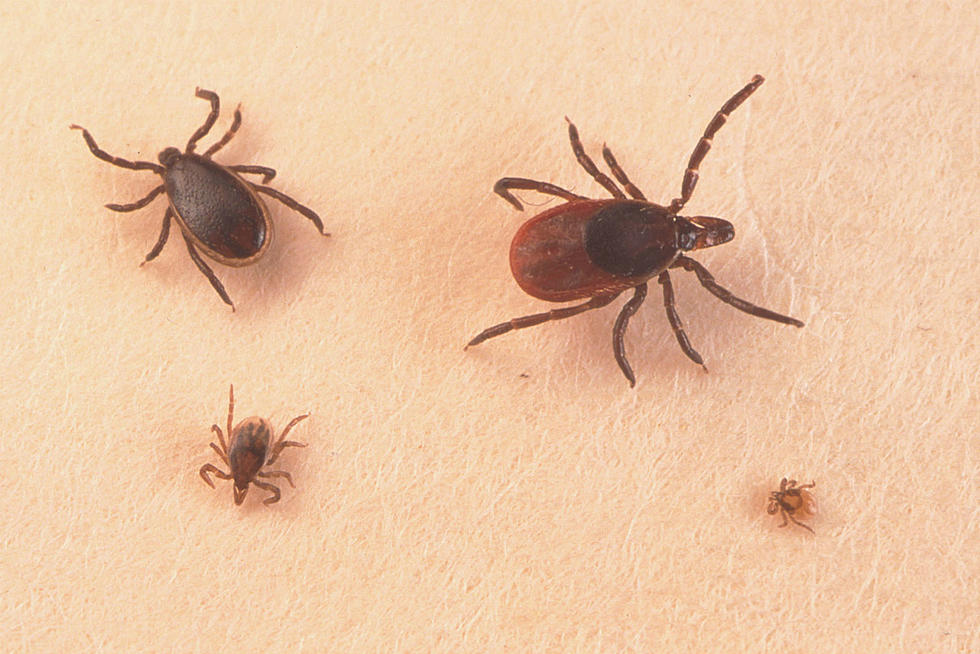
Maine Experiences Human Fatality Due to Rare Tick-Spread Illness
The Maine Center for Disease Control and Prevention sent out a press release on Wednesday informing Mainers of a fatal case of a rare tick-spread disease in Waldo County.
The rare infection is called Powassan virus which caused one Waldo County resident to succumb to neurologic symptoms and eventually die while being hospitalized. The Maine CDC stated that it was likely that the resident contracted this virus within the State of Maine via a deer tick or a woodchuck tick.
Ticks Cause More Than Lyme Disease
Mainers are used to the dangers of ticks passing along Lyme disease to humans and pets but this recent fatality brings to the forefront the many diseases that ticks can pass along to humans and the seriousness of the bloodborne pathogens that are contracted. Symptoms of Lyme disease can include initial rash, followed by fever, headache, joint pain, muscle pain, and fatigue for several weeks. Long-term issues include arthritis, Bell's palsy, and inflammation of parts of the nervous system and cardiovascular system.

Powassan Virus In Maine
Powassan Virus is very rare in the United States with only 25 cases detected in the United States since 2015. Maine has been able to identify 14 cases of Powassan since 2010. Maine reported 3 cases in 2021, one case in Waldo County, one case in Knox County, and one case in Cumberland county.
Symptoms of the virus can start a week to a month of getting bit. These symptoms could include headache, fever, vomiting, weakness, seizures, memory loss, and confusion. Serious neurological issues may develop that could include brain or spinal cord inflammation, according to information from the Maine CDC. Some people who contract the virus may not even get sick while some, like the resident from Waldo County, might die from the virus.
Avoid Tick Bites
Maine CDC Director, Dr. Nirav Shah states that 'Ticks are active' and these parasitic bugs are looking for blood. This means steps need to be taken to make sure you don't get bitten by a tick that could possibly infect you with a bloodborne pathogen such as Lyme Disease or the rare Powassan virus that has just taken another Mainer life.
Strategies to avoid tick bites from the Maine CDC include using caution or avoiding being in wooded/bushy areas, using approved repellent, and performing tick checks daily.
You're Breaking The Law In Maine If You Have Any Of These Animals As Pets
20 of the Scariest Maine Animals to be Watching you from the Outside
LOOK: Stunning animal photos from around the world
More From WBZN Old Town Maine









